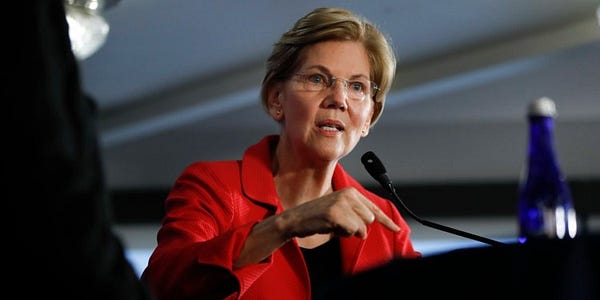With mid-term elections around the corner, Fifty by Fifty is tracking the latest policy developments in the employee ownership arena.
SBA draft regulations open for comment

The Small Business Administration has issued proposed regulations to clearly define the loan process for the 7 (a) Preferred Lender Program, following the passage of the Main Street Employee Ownership Act (MSEOA) last August. Those regulations are more restrictive than expected, according to Loren Rodgers, executive director of the National Center for Employee Ownership. He writes that NCEO “expected that the law would allow banks qualifying under the SBA’s 7(a) Preferred Lender Program to make loans for ESOP transactions without each loan having to get prior approval from the SBA.”
Yet in the proposed regulations posted September 28, the SBA says it will continue to require case-by-case approval for ESOP transactions. This more cumbersome process — approving each loan individually — has been one of the primary barriers to ESOP financing, hindering lenders from using the SBA program.
If you would like to comment on these proposed regulations (document ID SBA-2018–0009–0001, Regulation Identifier Number 3245-AG74), you can do so during the open comment period, which extends through November 27. Public comments are a critical part of the regulatory process. Any person concerned with the rule-making process can comment, whether a member of the general public or an expert on business financing. Here’s how:
Electronic:Go to the Federal Rulemaking portal:https://www.regulations.gov/document?D=SBA-2018-0009-0001. Follow the instructions for submitting comments.
Mail: Kimberly Chuday or Thomas Heou, Office of Financial Assistance, Office of Capital Access, Small Business Administration, 409 Third Street SW, Washington, DC 20416.
Hand delivery/courier: Kimberly Chuday or Thomas Heou, Office of Financial Assistance, Office of Capital Access, Small Business Administration, 409 Third Street SW, Washington, DC 20416.
As employee-ownership expert Joseph Blasi has said, the MSEOA is “the most significant policy change on employee share ownership in two decades.” The open comment period is your opportunity to weigh in on this critical rule-making process.
Quinsigamond Groupproposes innovative policy changes to expand employee ownership

An informal organization known as the Quinsigamond Group has issued a white paper offering several innovative proposals to expand employee ownership. Group members are John Case, former editor with Inc. magazine, now publisher of Employee-Owned America; Gellert Dornay, founder of Axia Home Loans, an employee-owned company; Michael Quarrey of employee-owned Web Industries; Stephen Ringlee of Centesimus Capital; Christopher Mackin of Ownership Associates; and Corey Rosen and Loren Rodgers of the National Center for Employee Ownership.
The paper, published in full at Employee-Owned America, cites for legislators the well-documented benefits associated with employee ownership, and notes that while about 7,000 U.S. companies currently have an employee stock ownership plan (ESOP), there has been little growth in recent years. The writers observe that the most common path to employee ownership is a private sale to an ESOP. But they suggest that corporate divestiture of a division offers another route with real potential. They write: “In 2016, public companies in the United States divested almost $100 billion worth of subsidiary divisions. As far as we know, none of these divestitures resulted in employee ownership.”
The group suggests that new institutions, along with new tax and regulatory policies, could make this and other routes to employee ownership more viable. Their proposals include:
· Transition more corporate divestitures to ESOPs by creating Employee Ownership Investment Corporations (EOICs), and providing financial incentives through a 50 percent reduction in taxable interest income.
· Exempt some portion of taxable gains for corporations that divest operating units into employee ownership.
· Encourage private equity to sell portfolio companies to ESOPs through an exemption of taxable gains.
· Increase participation in stock option plans at publicly traded companies, by having companies seed the first two years of participation in the fund with $1,000 grants to each employee.
Several legislative proposals to expand employee ownership are now circulating in Congress. The Quinsigamond Group is contributing fresh and powerful ideas, if legislators becomes serious about expanding employee share ownership to ensure a more equitable economy for the 21st century.
Elizabeth Warren’s Accountable Capitalism Act

In a recent post in Employee-Owned America, David Ellerman, a professor at the University of California, Riverside, critiques Elizabeth Warren’s Accountable Capitalism Act for failing to promote employee ownership. With bipartisan support for Employee Stock Ownership Plans (ESOPs) in Congress, Ellerman argues that Warren could have pushed “for some kind of mandatory non-trivial ESOP in public companies of a certain size.” Even a relatively small-percent ESOP, he suggests could have a significant impact on employee wealth.
Senator Elizabeth Warren’s legislation would require large public corporations (revenues over $1 billion) to receive a “federal charter of corporate citizenship.” The charter would mandate that these corporations consider their impact not only on shareholders, but employees, customers, and the communities where they operate. The aim is to shift corporate culture away from the shareholder-first philosophy, and to make the American economy more equitable. Among a number of specific provisions, the new corporate charter would require employees elect 40 percent of corporate board members.
Warren’s bill, which is modeled on the German system of co-determination, is not likely to get a hearing anytime soon, but it is a vehicle to begin talking about economic policies that would benefit working Americans, their communities, and the environment. Employee ownership needs to be a part of those discussions. Changing governance without changing ownership is not optimally effective: the two work best together.
Fifty by Fifty, an initiative of @DemocracyCollab, is working to transform the U.S. economy by growing employee ownership. Join our campaign, and we’ll send our monthly newsletter, filled with great company stories, right to your inbox.

